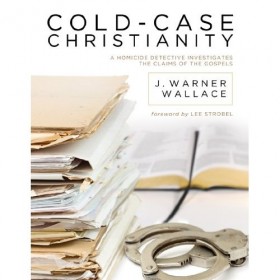
I spotted this on Apologetics 315.
The MP3 file is here. (43 minutes)
Details from Brian’s post:
Today’s interview is with Jim Wallace of PleaseConvinceMe.com and host of the PleaseConvinceMe Podcast. As a cold case detective, Jim brings a unique perspective to his approach to apologetics and a very down-to-earth logical style. In this interview, Jim talks about his approach to the evidence (inference to the best explanation), Tactics and apologetics, debate vs. dialogue, pitfalls to apologists, and more.
Topics:
- Jim’s background as an Catholic-raised atheist, and cold-case detective
- Jim believed in the progress of science to answer all the unresolved questions
- How did Jim become an atheist?
- Why didn’t Jim respond to Christians witnessing to him without evidence?
- What approach worked to start him thinking about becoming a Christian?
- What did Jim do to grow as a Christian?
- How did Jim’s police training help him to investigate Christianity?
- What investigative approach is used in his police work?
- Does “abductive reasoning” also work for investigating Christianity?
- What sort of activities did Jim get involved in in his community?
- How Jim’s experience as a youth pastor convinced him of the value of apologetics
- How young people learn best by training for engagement with opponents
- How Jim takes his youth on mission trips to UC Berkeley to engage the students
- Is it possible to run an apologetics ministry part-time while keeping a day job?
- Do you have to be an expert in order to have an apologetics ministry?
- What books would Jim recommend to beginning apologists?
- How the popular apologist can have an even bigger impact than the scholar
- How the tactical approach is different for debates and conversations
- Jim’s advice for Christians who are interested in learning apologetics
- How Christian apologist need to make sure they remain humble and open-minded
- How your audience determines how much you need to know from study
Jim’s reason for becoming an atheist, (his mother was excluded from the Catholic church after her divorce), is one I have heard before. I like the way he eventually came back to Christianity. No big emotional crisis, just taking a sober second look at the evidence by himself, and talking with his Christian friends. I’m impressed with the way he has such a productive ministry, as well.

